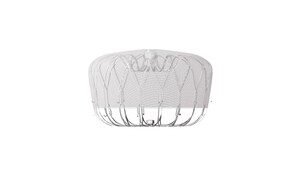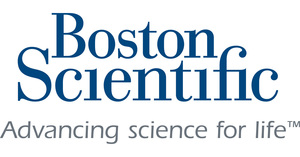Boston Scientific Vercise™ Deep Brain Stimulation System Receives CE Mark Approval for Treatment of Dystonia
First System To Selectively Stimulate Targeted Areas Of The Brain To Manage Symptoms of Debilitating Disease
NATICK, Massachusetts, November 19, 2013 /PRNewswire/ --
The Boston Scientific Corporation (NYSE: BSX) Vercise™ Deep Brain Stimulation (DBS) System has received CE Mark approval for the treatment of intractable primary and secondary dystonia, a neurological movement disorder characterized by involuntary muscle contractions.
Dystonia affects more than 500,000 people across Europe, including children and adults. It is the third most common movement disorder after Parkinson's disease and essential tremor.[1] Symptoms include involuntary muscle contractions, with twisting, repetitive movements or abnormal postures, which can be painful and debilitating. The Vercise DBS System is the first system designed to selectively stimulate targeted areas of the brain in order to customize therapy and manage symptoms of Parkinson's disease. This system now offers new hope for patients with dystonia.
The first implant of the Vercise DBS System for the treatment of dystonia was performed by a team from the Charité Campus Virchow-Klinikum (CVK), which included Prof. Dr. Andrea Kühn, Department of Neurology, and Dr. Gerd-Helge Schneider, Department of Functional Neurosurgery.
"Historically, treatment of secondary dystonia has been challenging and efficacy was typically incomplete and partially limited by side effects. The Vercise DBS system represents an advancement in dystonia care by providing more flexible and unique programming options for targeted deep brain stimulation tailored to each individual," said Prof. Dr. Andrea Kühn.
"The device itself is designed to offer additional patient benefits including the longest battery life available for DBS and the smallest implanted stimulator footprint, especially important for our young patients," said Dr. Gerd-Helge Schneider.
"The Vercise DBS System's advanced technology has already demonstrated significant improvements in motor scores for patients with Parkinson's disease as evidenced by the interim results from our VANTAGE multicenter clinical trial," said Maulik Nanavaty, president, Neuromodulation, Boston Scientific. "With this approval we look forward to extending the use of this technology to improve the quality of life of patients with dystonia."
The Vercise DBS System received CE Mark and Australia TGA (Therapeutic Goods Administration) approval in 2012 for the treatment of Parkinson's disease. It is available in Europe, Israel, Australia and Colombia for such treatment. In the U.S., the Vercise DBS System is investigational and not available for use or sale.
Click here to view or download an image of the Vercise DBS System.
- http://dystonia-europe.org/ Accessed October 2013
About Boston Scientific
Boston Scientific transforms lives through innovative medical solutions that improve the health of patients around the world. As a global medical technology leader for more than 30 years, we advance science for life by providing a broad range of high performance solutions that address unmet patient needs and reduce the cost of healthcare. For more information, visit http://www.bostonscientific.com or http://www.bostonscientific-international.com, and connect on Twitter and Facebook.
Cautionary Statement Regarding Forward-Looking Statements
This press release contains forward-looking statements within the meaning of Section 27A of the Securities Act of 1933 and Section 21E of the Securities Exchange Act of 1934. Forward-looking statements may be identified by words like "anticipate," "expect," "project," "believe," "plan," "estimate," "intend" and similar words. These forward-looking statements are based on our beliefs, assumptions and estimates using information available to us at the time and are not intended to be guarantees of future events or performance. These forward-looking statements include, among other things, statements regarding new product launches and launch cadence, regulatory approvals, clinical trials, product performance and competitive offerings. If our underlying assumptions turn out to be incorrect, or if certain risks or uncertainties materialize, actual results could vary materially from the expectations and projections expressed or implied by our forward-looking statements. These factors, in some cases, have affected and in the future (together with other factors) could affect our ability to implement our business strategy and may cause actual results to differ materially from those contemplated by the statements expressed in this press release. As a result, readers are cautioned not to place undue reliance on any of our forward-looking statements.
Factors that may cause such differences include, among other things: future economic, competitive, reimbursement and regulatory conditions; new product introductions; demographic trends; intellectual property; litigation; financial market conditions; and future business decisions made by us and our competitors. All of these factors are difficult or impossible to predict accurately and many of them are beyond our control. For a further list and description of these and other important risks and uncertainties that may affect our future operations, see Part I, Item 1A - Risk Factors in our most recent Annual Report on Form 10-K filed with the Securities and Exchange Commission, which we may update in Part II, Item 1A - Risk Factors in Quarterly Reports on Form 10-Q we have filed or will file hereafter. We disclaim any intention or obligation to publicly update or revise any forward-looking statements to reflect any change in our expectations or in events, conditions or circumstances on which those expectations may be based, or that may affect the likelihood that actual results will differ from those contained in the forward-looking statements. This cautionary statement is applicable to all forward-looking statements contained in this document.
SOURCE Boston Scientific Corporation
WANT YOUR COMPANY'S NEWS FEATURED ON PRNEWSWIRE.COM?
Newsrooms &
Influencers
Digital Media
Outlets
Journalists
Opted In






Share this article